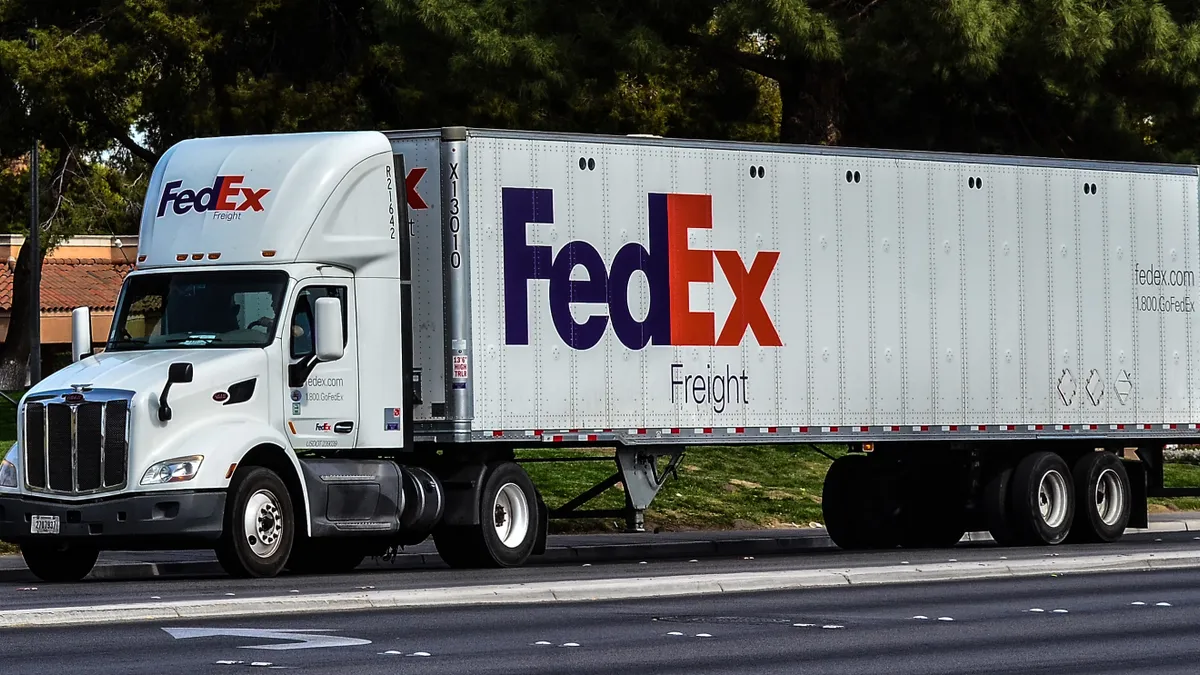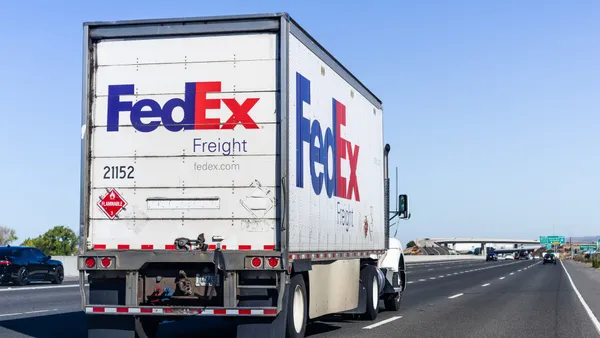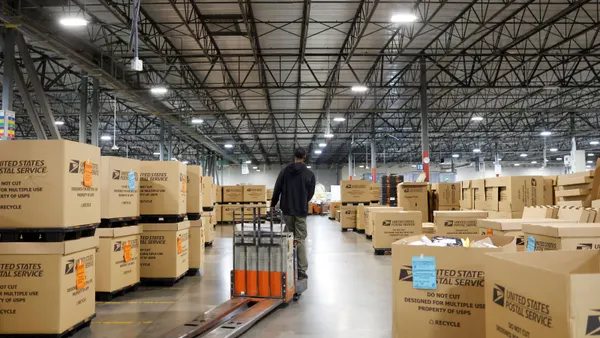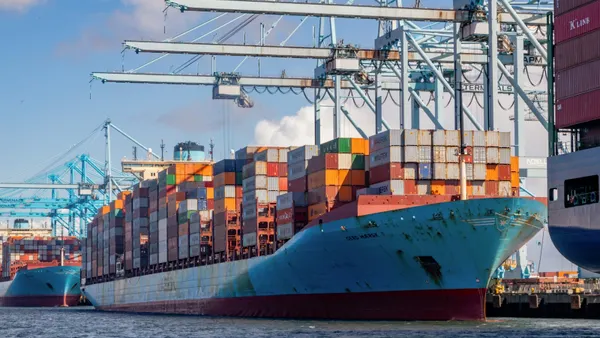FedEx's upcoming spinoff of its trucking unit is poised to shake up some of the carrier's contract agreements, opening the door for shippers to consider new less-than-truckload options.
The company is preparing to carve out FedEx Freight into a separate entity by June 2026. The bulk of the LTL carrier's volume is tied to standalone agreements, but most of its smaller customers have a bundled contract that includes FedEx's parcel shipping services, EVP and Chief Customer Officer Brie Carere said in December 2024.
Bundled contracts feature discounts for parcel delivery services the more LTL volume customers ship, Carere added. This means customers with both parcel and freight shipping needs may be drawn to a bundled contract, as the LTL spending can fuel lower last-mile delivery rates.
"As we go through the [spinoff] process, we will look at the small customer strategy, and I anticipate that that will be slightly nuanced because that's where we really have leveraged the benefit of the earned discount program at FedEx," Carere said.
Earned discounts are based on gross revenue, with both LTL and parcel spend contributing toward that figure in bundled arrangements. FedEx customers will need to make sure that even as the carrier separates those deals, they won't lose out on lucrative cost savings in the process, experts told Supply Chain Dive. Maintaining favorable pricing has become especially important as FedEx's discounting push dissipates and surcharges continue to climb.
As the spinoff advances, FedEx is already pushing for reworked agreements that move shippers from bundled contracts to separate parcel and LTL arrangements, according to Thomas Andersen, partner and chief supply chain officer at LJM Group. In the early going, the company is targeting contracts with "a pretty significant amount of LTL volume," he said.
"What we're seeing on the FedEx Freight side is already FedEx is going to shippers and [talking] about getting an agreement to unbundle that LTL volume, to take it out of their own discount structure," Andersen said.
For FedEx, adjusting these agreements should be a straightforward endeavor, Andersen said. The carrier can tweak the earned discount spending tiers, reflecting the revenue for one shipping mode per contract, and come up with comparable discounts featuring similar agreement structures.
"You pitch it as, 'Hey, look, we're keeping your pricing the same. You just now have standalone agreements,'" Andersen said.
Ahead of the spinoff, FedEx said in an emailed statement to Supply Chain Dive that providing a smooth transition for shippers is a top priority. The carrier will continue to work with customers to ensure both their parcel and freight shipping needs are satisfied “today and in the future,” according to the statement.
But as ties between LTL spending and parcel discounting fade, customers may consider other trucking firms. Parcel-heavy customers with a low number of freight shipments are top candidates to explore alternative LTL options and see cost savings as a result, experts said, as FedEx Freight has a reputation for more premium pricing.
"The LTL industry often refers to FedEx Freight as the Cadillac of all LTL providers, but you're paying for it as well, as compared to other providers," said Paul Yaussy, senior director of parcel consulting at Shipware.
To prepare for the shift away from bundled contracts, shippers need to understand how their parcel and LTL volume contributes to their current spending-based discounts, said Dave Sullivan, director of operations at ShipScience. They can then reach out to FedEx about adjusting their base parcel shipping discounts to account for whatever incremental benefits they may lose from LTL spend no longer being factored in the contract.
"Make sure you understand how the contract is structured today and how it's functioning today in terms of that bundling aspect, and then renegotiate accordingly," Sullivan said.















